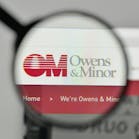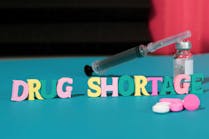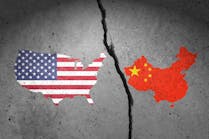According to a Nov. 7 press release from the American Medical Manufacturers Association (AMMA), the alliance is advocating for tax incentives, tariffs, and enforcement of labor and environmental standards to encourage more U.S. medical equipment production amid concerns over supply chain disruption following recent hurricanes and continued competition with foreign trade partners.
The press release noted, “AMMA advocates for U.S. businesses that produce medical personal protective equipment (PPE) and the input materials needed to manufacture it.”
Further, “Publicly launched in 2023, the organization supports a more robust domestic supply chain of essential medical equipment. Eric Axel, executive director of AMMA, told FreightWaves in a video call that the organization is made up of nearly 20 companies today – including several newer startups that launched in response to the pandemic.”
“Some of our companies have been around much longer than the pandemic,” Axel said. “But there was certainly an identification of a problem that in this country we rely on, mostly, nonfriendly, adversarial countries that are not democracies for our critical medical supplies such as PPE. China is not an ally of the U.S., and we learned during the pandemic we rely on them. Not only do we rely on them for a lot of these things, but they can tell us no.”
Axel added that the U.S. also receives products from nations like Malaysia and Thailand, but these countries are not held to the same standards as U.S.-based companies.
“He pointed out that Americans are starting to take notice of where goods are coming from and whether trade partners hold similar labor and environmental standards,” the release said.
Disruptions, according to the release, are more frequent now than a decade ago.
Axel said medical manufacturers have learned several lessons from Hurricane Helene and Hurricane Milton.
The release stated, “Axel added that relying on one or two major manufacturers for critical supplies is a weak spot. He referred to the national shortage of IV fluids caused by hurricane flooding at Baxter International’s North Cove facility in North Carolina.”
Further, “While currently a threat to national security, reliance on foreign medical supplies and PPE also presents an opportunity to create jobs at home and boost the economy, Axel said.”
The release concludes by noting that there is risk in competing with foreign manufacturers of medical equipment. It said, “The solution, Axel said, is tax incentives for domestic manufacturers, increased tariffs on foreign medical supplies and enforcement of standards on goods that are coming in. ‘There’s tools in the toolbox that we can use to enforce trade policies and keep our companies on a level playing field as best we can,’ Axel said. ‘We know they’re going to cheat, and I don’t want to paint a broad brush, but it’s just their strategy.’”

Janette Wider | Editor-in-Chief
Janette Wider is Editor-in-Chief for Healthcare Purchasing News.





